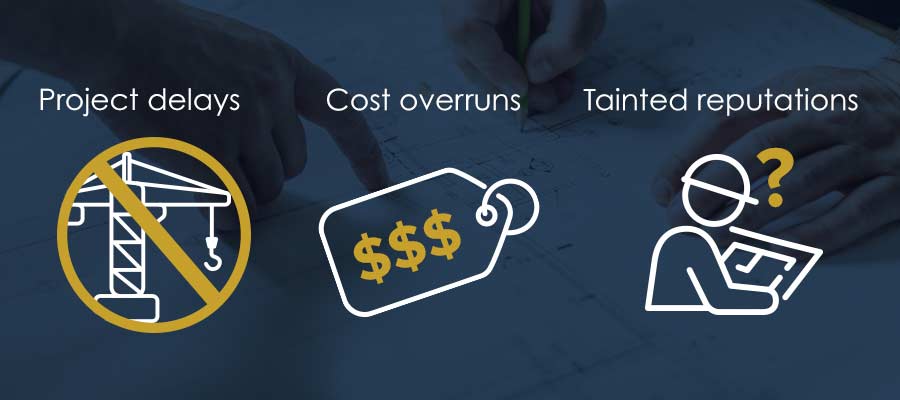
Project delays. Cost overruns. Tainted reputations. These are the project risks associated with incomplete structural drawings and requests for information (RFIs).
RFIs are nothing new to the construction industry. They have been a necessary and important part of building design and construction for decades. Arising out of incomplete or inaccurate structural drawings, RFIs appear to be increasing in frequency while decreasing in effectiveness.
Navigant Construction Forum researched almost 1,400 projects that began between 2001 and 2012, a landmark study that continues to impact the industry almost a decade later. The numbers Navigant uncovered are almost too shocking to believe.
In the 1,362 projects studied, 1.1 million RFIs were submitted for an average of 796 per project. The cost of each RFI was about $1,080, or $859,680 per project. The monetary figures are just the beginning, however. RFIs are costly in many ways.

Resolving an RFI often ensnares representatives of multiple trades working on a project. The RFI back-and-forth contributes to extended project timelines, delaying occupancy and resulting in a loss of residential or business revenue.
As the RFI process drags, it often drains a project’s contingency funds. Belated structural design and engineering analyses result in the addition, modification or removal of structural materials, with resulting change orders becoming the norm for material costs and field work.
A developer or owners of a project has a reasonable set of expectations about their investment, and when they are not met, everyone suffers. If a drawn-out RFI process causes project delays or cost overruns, reputations are damaged.
The problem of incomplete drawings and RFIs is not going away anytime soon. Progressive firms are pursuing better ways to deal with them and a better way forward.
A three-part, in-depth guide about RFIs from New Millennium reveals even more costs associated with the long-accepted RFI process. You’ll see even more eye-opening statistics about the true cost of RFIs. There’s also advice from industry specialists with decades of experience with RFIs. Case studies show how your peers in the industry successfully dealt with RFIs. Finally, you will learn about strategies and actions you can take to avoid and mitigate RFIs.
The free guide is part of our commitment to educating the industry and sharing our knowledge of structural steel building systems. Together, we can build it better.
Building a better steel experience